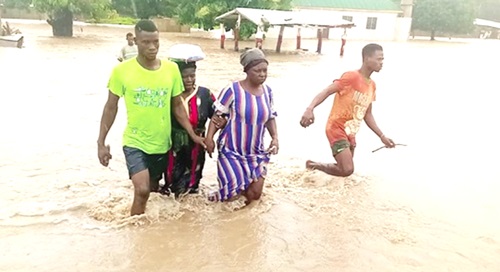
Loss, damage fund: Can COP28 save vulnerable countries?
Grimace of dejection, despair and hopelessness are still written on the faces of over 40,000 residents along the lower Volta, Eastern and Greater Accra regions, two months after devastating floods submerged their homes and robbed them of their livelihoods.
Advertisement
The floods, which were caused by the spillage of the Akosombo Dam, collapsed many buildings, destroyed farms and damaged other sources of livelihood.
Cemeteries, graveyards, toilet facilities and refuse dumps were also affected, with development experts pointing dire health consequences.
Some of the residents are still battling with psychological trauma after losing their fortunes to the floods.
Child Rights International (CRI), a non-governmental organisation (NGO), established that 71 basic schools were submerged in flood-hit areas, forcing 19,743 children out of school.
Additionally, over 9,000 children could not retrieve their uniforms and other educational materials, such as, bags, books, shoes and textbooks from the floodwaters.
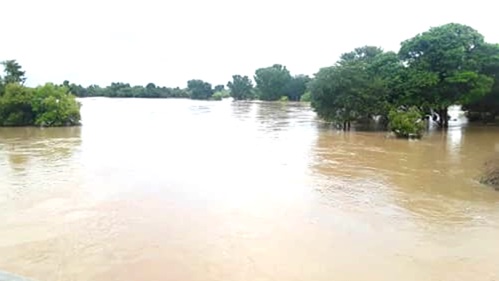
Some flooded farms in the North-East Region
Meanwhile, over 10,000 residents of coastal communities in the Krachi East District in the Oti Region are also counting their losses after the Oti River overflowed its banks and wreaked havoc on homes and livelihoods.
That is equally the story of thousands of people in the Bono, North-East and Savannah regions, where floods overwhelmed lives and properties.
Other Trending Stories
The flooding disasters in these parts of the country brought to the fore the devastating impacts of the global climate crisis on vulnerable communities in developing countries.
Loss, damage fund
It is in the light of this that countries agreed at the 27th United Nations Climate Change Conference (COP27) in Egypt in November 2022 to set up a fund to compensate vulnerable nations for ‘loss and damage’ from climate-induced disasters.
As defined by the United Nations Environment Programme (UNEP), loss and damage refers to “the negative consequences that arise from the unavoidable risks of climate change, like rising sea levels, prolonged heatwaves, desertification, the acidification of the sea and extreme events such as bushfires, species extinction and crop failures.”

The flood disaster affected the old and the young at Mepe in the Volta Region
When negotiators at COP27 took the landmark decision to set up the loss and damage fund, developing countries and climate activists heaved a sigh of relief, describing it as a major “breakthrough” for climate justice.
However, it appears they will have to hold their breath.
With just a few days to COP28, climate change experts say there is faint hope that the anticipated outcomes on loss and damage would see the light of day at the climate summit slated for the Expo City of Dubai in the United Arab Emirates (UAE) from November 30 to December 12.
This is especially so, when the 24-member transitional committee, which was set up at COP27 and tasked to work out the details of the fund are grappling with the thorny issues of eligibility, source of capitalisation of the fund and institutional arrangement for hosting the fund.
Reports indicate that developed countries, spearheaded by the US, have pushed for the fund to be hosted by the World Bank, whereas developing countries prefer an independent loss and damage fund that can set its own rules, or one housed at a UN agency.
Nagging issues
An independent consultant on climate change, Xolisa Ngwadla, is of the view that with the current state of affairs, countries will leave COP28 without a clear headway for the loss and damage fund.
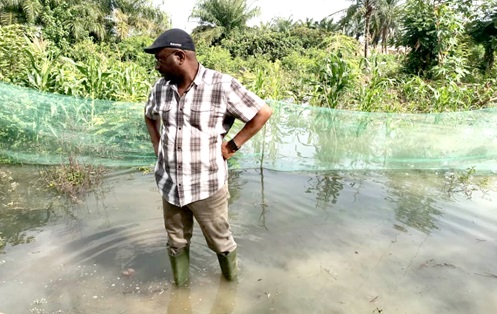
A dejected fish farmer counting his losses after the flood disaster
The climate change negotiator stressed that there will definitely be a step forward in COP28, “but it will not be to a point where funds will be flowing for developing countries.”
Advertisement
“Let us not forget that it took more than two years to negotiate the government instrument of the Green Climate Fund (GCF), so we can expect the same, unless some political will comes in to fasten the process,” he noted.
Touching on why developing countries are objecting to the fund being hosted by the World Bank, Mr Ngwadla said, “the types of instruments that the World Bank traditionally uses are not completely palatable for developing countries; they are mainly debt instruments, there will be bias to insurance type of instruments.”
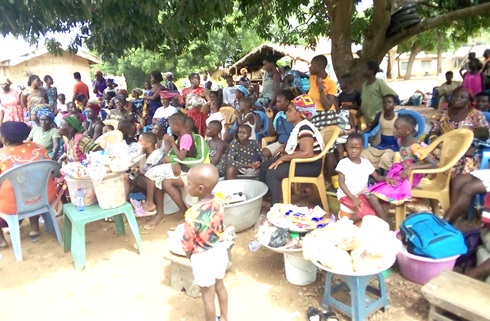
These displaced residents of Mepe in the Volta Region have no place to lay their heads
“In the history of negotiations at theCOP, it has been demonstrated over and over that if you are united around a certain position, you tend to achieve what you want.
Advertisement
This is no different,” he said.
A senior climate and security advisor for the UN Mission in South Sudan, Dr Johnson Nkem Ndi, also observed that while it was important to push for the operationalisation of the loss and damage fund, attention needed to be paid to “the critical details” of what constituted a loss or a damage.
Again, he stressed that due diligence needed to be done to determine the level of vulnerability of communities to climate impacts to form the basis of what should be paid in loss and damage.
“This has to be worked out before we even get into the political arrangements as to who hosts the fund, what kind of disbursement should be done, the nature of capitalisation of the fund,” he said.
However, the Minister for Development Cooperation and Global Climate Policy of Denmark, Dan Jorgensen, is of the view that a fair play for climate justice would be for developed countries to commit to capitalising the loss and damage fund.
Advertisement
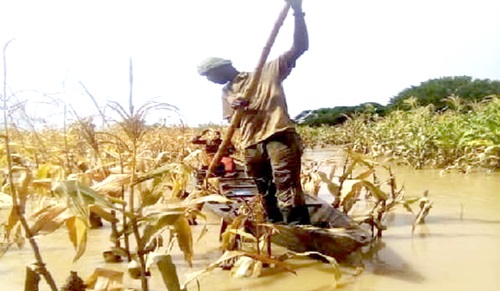
A farmer trying to salvage his farm produce from his flooded farm in the Savannah Region
“For me, paying for loss and damage is also a question about justice, it is a question about doing what is fair,” he said, explaining that it was on that principle that Denmark was on record as the first country to pledge funding for the loss and damage fund even before it was decided.
His fear is that loss and damage fund could become a slow process where countries negotiate on the technical stuff on how it should look like.
”We do not have time for that.
We need to find a structure so that we can get it fast and running as soon as practicable so that countries that need money can get it fast,” he stressed.
Nutshell
The complexities in the discussion of loss and damage stem from the fact that while some of the events can be quantified in economics terms, others are non-economic because their negative impacts are difficult or infeasible to assign monetary value to.
For instance, it is possible to quantify the cost of rebuilding physical infrastructure that was damaged by floods in some parts of Ghana.
The loss of revenue from agriculture crops that were destroyed can also be costed.
But, how can things such as trauma from experiencing flood, loss of community due to displacement of people or loss of biodiversity, be quantified?
As the mill on the loss and damage fund continues to grind, the intensity of climate shocks and hazards is increasing.
People are incurring more loss and damage that need to be taken care of. Unpredictable rainfall patterns are causing severe droughts and flooding across the developing world, with attendant loss of lives and properties.
Small-holder farmers whose farming activities are rain-fed are counting the losses as crop yields continue to dwindle. Rising sea levels are sweeping away coastal communities.
That is why the world must act fast.
Writer’s email: ngnenbetimothy”gmail.com




